Privacy and confidentiality
Privacy is a crucial element of our personal security, enabling free speech and democratic participation. The absolute and fundamental human right to privacy guarantees people respect for their private life and freedom from snooping and unlawful interference. It gives everyone the freedom to be themselves, to express and develop their opinions and ideas with dignity, and to practice their religion, as well as giving journalists and civil society the ability to report on violations of rights by states or businesses. Without sufficient privacy, people’s private interactions are exposed, which can be used to target or discriminate against them.
Filter resources
-

Police cameras won Big Brother Awards in Czechia
EDRi member in the Czech Republic Iuridicum Remedium handed out its anti-prizes for the eighteenth time in March 2023. 2022 was exceptional: one of the "awardees" came for the award, and the others had to express themselves under the pressure from the media.
Read more
-

France becomes the first European country to legalise biometric surveillance
EDRi member and Reclaim Your Face partner La Quadrature du Net charts out the chilling move by France to undermine human rights progress by ushering in mass algorithmic surveillance, which in a shocking move, has been authorised by national Parliamentarians.
Read more
-

Signal’s Meredith Whittaker voices EDRi’s concerns with the CSA Regulation
Meredith Whittaker, the President of the Signal Foundation, delivered the closing keynote speech at EDRi’s 20th-anniversary celebration in March 2023. The tech professional focused on the “recent spate of regulatory proposals and misguided tech fixes [like the EU’s Child Sexual Abuse Regulation] that offer false and surveillant solutions to complex social problems – solutions that always seem to lump the right to privacy in with malfeasance, and offer to address bad actions by eliminating privacy.”
Read more
-
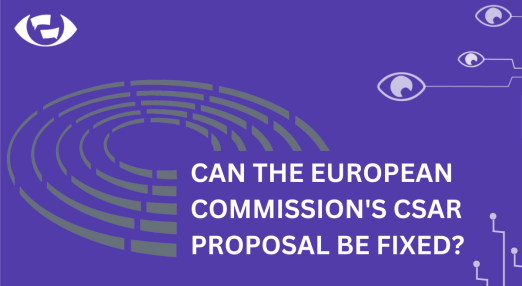
Internal market MEPs wrestle with how to fix Commission’s CSAR proposal
The European Union’s proposed CSA Regulation (Regulation laying down rules to prevent and combat child sexual abuse) is one of the most controversial and misguided European internet laws that we at EDRi have seen. Whilst aiming to protect children, this proposed law from the Commissioner for Home Affairs, Ylva Johansson, would obliterate privacy, security and free expression for everyone online.
Read more
-

Health and digital rights organisations urge EU lawmakers to uphold patients’ rights in new health data law
European lawmakers must ensure patients have control over their private medical records by adding an ‘opt-in’ consent requirement for the secondary use of health data under the proposed European Health Data Space (EHDS).
Read more
-
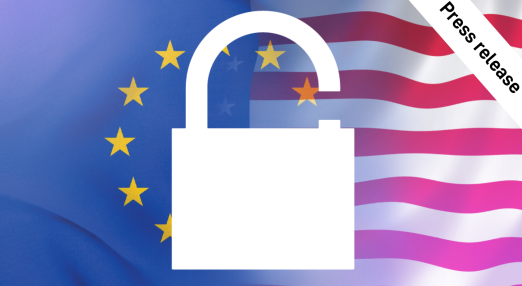
EU-US plan offensive to legitimise police access to data, civil society responds amid growing fears – Press Release
On 6 April 2023, EDRi and 8 partners sent an open letter to the European Commission President Ursula von der Leyen and Vice President Margrethe Vestager, as well Swedish Prime Minister Ulf Kristersson. Through the letter, the organisations called out the clear and deliberate plans to disregard international human rights standards in the EU-US approaches to security in the digitalised society, in particular in regards to end-to-end-encryption.
Read more
-
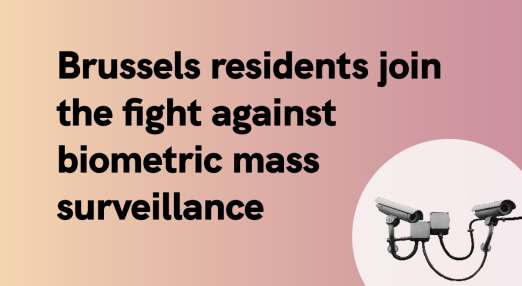
Protect My Face: Brussels residents join the fight against biometric mass surveillance
The newly-launched Protect My Face campaign gives residents of the Brussels region of Belgium the opportunity to oppose mass facial recognition. EDRi applauds this initiative which demands that the Brussels Parliament ban these intrusive and discriminatory practices.
Read more
-

Position Paper: EU’s proposed health data regulation ignores patients’ privacy rights
EDRi’s new position paper outlines how the European Commission’s proposal for a European Health Data Space, in an attempt to make use of people’s health data, would sabotage the rights of patients to make decisions about their private medical information.
Read more
-
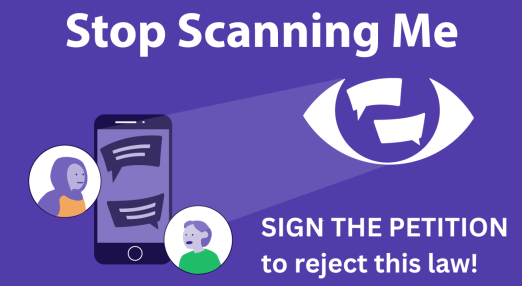
Petition: Children deserve a secure and safe internet
Join us in our fight against the EU's attempt to scan every move we make online. Sign the petition.
Read more
-

PEGA Committee must call for an EU-wide ban on spyware
The European Parliament’s inquiry committee on Pegasus and other similar spyware (PEGA) is working on a set of recommendations for the regulation of the use of intrusive spyware by EU Member States. It is still unclear whether the Committee will dare to set vitally needed red lines and call for a sufficiently protective European Union-wide framework against spyware in its non-binding report. EDRi submitted amendments to strengthen the demands for the protection of affected people and democratic values.
Read more
-

TikTok’s “Focused View”: the creepy new feature aims to monetise your emotions
Ever heard of TikTok’s “Focused View”? With this new feature launched in October 2022, TikTok claims it can track your emotions to sell ads. We have our doubts if that’s even possible – but it certainly is invading your privacy to drive profits. Here is why, and what it means for users in Europe.
Read more
-
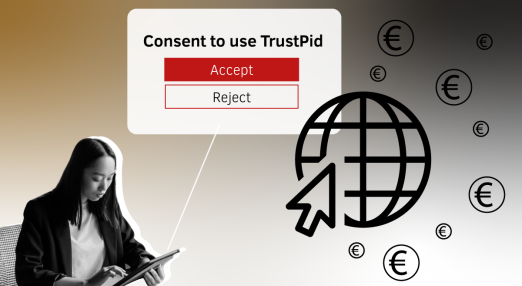
TrustPid: Baking ad tracking into the internet infrastructure
A consortium of Europe’s largest telecommunications operators (telcos) has proposed a new kind of tracking ads system to challenge commercial surveillance heavyweights like Google and Facebook. The new tracking system, misleadingly dubbed ‘TrustPid’, would be baked into the internet’s network infrastructure – potentially with little recourse or defence for users.
Read more
